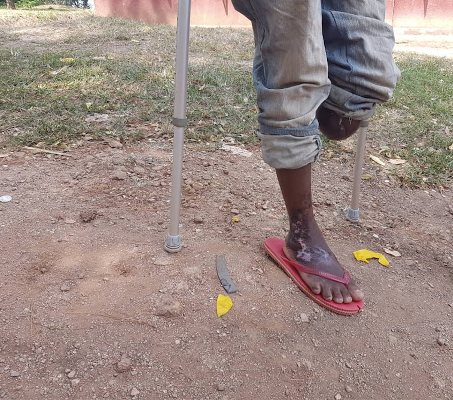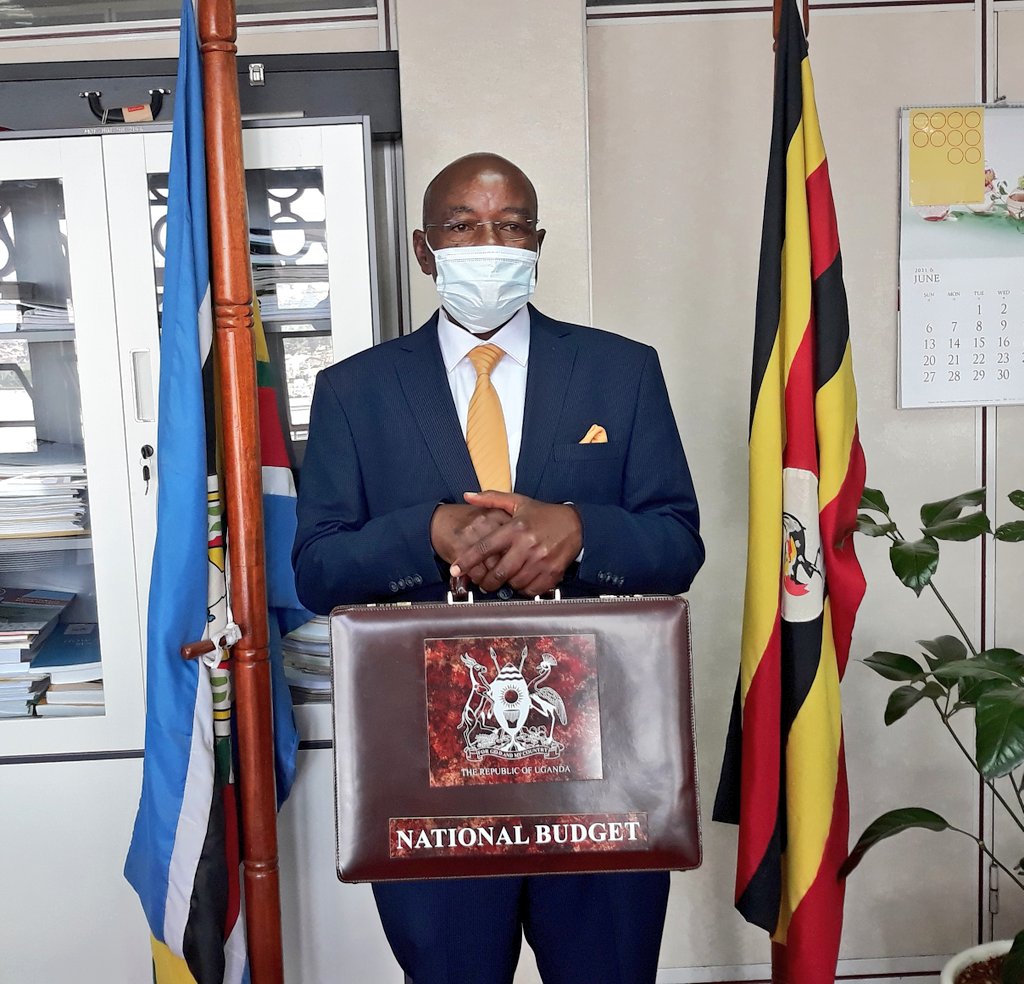A Farm barista buying coffee beans and ground coffee for farm coffee shop from the farm
Uganda is the eighth largest coffee producer in the world and Africa’s largest Robusta coffee producer and number one coffee exporter.
Despite a rich history of coffee production for decades, Uganda has predominantly had a tea drinking culture. Coffee consumption has historically been and remains low.
Government and the private sector have come up with numerous interventions to increase local coffee consumption and the coffee drinking culture is slowly evolving.
At farm level, farmers rarely drink what they produce.
However, some companies are promoting a coffee drinking culture at farm level.
Heritage Kanaani Farms is one of the few companies with a strategy of promoting coffee consumption at the farm.
Located approximately 18km off Buwama Trading Centre along Masaka Highway in Bunjako Island, Mpigi district, the farm sits on 900 acres of land, 300 of which are already planted with coffee.
On Saturday July 15, 2023, Business Focus team had a guided tour of the farm and got introduced to the coffee drinking culture at the farm.
Andrew Eriki, the General Manager at Heritage Kanaani Farms, says he wanted to introduce coffee consumption to all employees at the farm including the casual workers and came up with an idea of using locally available resources to establish a farm coffee shop for the workers.
He says that he based on the fact that the farm has predominantly youth as workers and youth don’t like expensive things.
They also like quick things and would not want to go through the “hustle” of brewing coffee for themselves so he decided to hire and train a farm barista on how to make a simple and quick good coffee cup.
He says Ugandans tend to have a “sweet tooth” so to entice the workers to drink coffee, he made sure the coffee is served with milk for the start, given that the farm has cows that are milked every day.
He decided to start selling some of the milk to the farm coffee shop. The farm also sells ground coffee to the farm coffee shop but uses low grade Robusta coffee beans to reduce the cost of production and ensure that the coffee sold to workers is cheap.
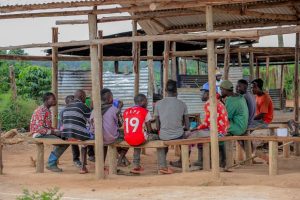
A cup of African coffee (coffee with milk) at the farm coffee shop is 1000 shillings. Eriki says he also trained the farm barista to add flavours like cinnamon, cloves and vanilla when preparing the coffee and in no time workers were in love with coffee.
The farm barista also makes chapatis which are sold to workers at 2000 shillings each.
Eriki says the workers drink coffee and eat chapatis as “escort”.
The farm also constructed a shade using locally available materials where the workers can sit and drink coffee and constructed a cinema hall (Kibanda) also with local materials where the workers sit to watch football and movies as they drink coffee and eat chapatti.
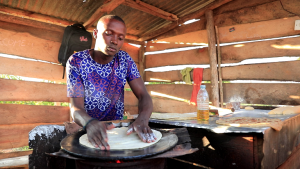
He adds that Heritage Kanaani Farms pays causal workers every two weeks (kasanja). “Kasanja payment system” means that a month has two kasanjas.
“Workers are therefore allowed to buy coffee, chapatti or watch movies/football on credit and pay at the end of the kasanja that is when they receive their wages,” Eriki says.
Coffee consumption at the farm is also being pushed through promoting chewing of roasted coffee beans. Each pack of roasted coffee beans costs between 500-1000 depending on the grade of coffee beans used.
He says chewing roasted coffee beans is popular among the workers because they can chew the coffee beans at any time of the day and from anywhere.
He adds that the farm coffee shop supplements farm revenues given that the farm has over 200 workers.
“Some locals are also customers of our coffee,” he says, adding: “This small farm coffee shop brings in revenues of about three million per month.”
He says promoting coffee consumption on the farm benefits not just the farm, but can also create additional jobs, especially for young people and helps workers do their jobs better.
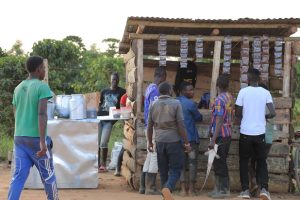
Ivan Murindwa, the farm barista at Heritage Kanaani Farms is a 25-year-old from Mubende district and lives on the farm with his wife who is 23 years, and works in the coffee processing department.
They have both worked at the farm for over one year and they recently got their third child who they call a “kanaani baby”. They have managed to save with the farm SACCO and Murindwa says he has bought two plots of land from their savings and they hope to continue saving and start constructing their family home.
Muhindo Kizito from Kasese district came to work at the farm as a cook for the main kitchen for casual workers. He is one of the best customers of the farm coffee shop and says he can’t’ drink less than three cups a day. He says drinking coffee has helped him with his job since he started drinking coffee, he feels his job has become more enjoyable.
He says waking up at 4:00am to start preparing porridge for workers is no longer a problem.
He says he’s “very steady” and says though he prepares food for about 200 people every day, he wouldn’t mind preparing for 500 people because “coffee has made me very energetic.”
Muhindo says most of the workers at the farm have discovered that coffee helps with hangover so when they over drink on the weekend, they make sure they drink coffee to “remain steady” at work.
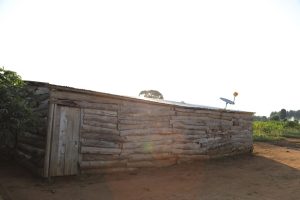
Henry Kiwumulo is a 22-year-old from Mpigi district, he works at Heritage Kanaani Farms as an office clerk for the field office. He is also one of the best customers of the farm coffee shop. He says coffee helps him do his job well. He has to wake up early by 6:30am every day to issue tools and inputs and also has to collect and record data throughout the day so drinking coffee keeps him keep alert that is why he makes sure he drinks a cup or two every day.
Understanding Youth is key
Eriki says promoting coffee consumption among young people starts through understanding them- their lifestyles, tastes and preferences, cash flows among others and customize promotion interventions accordingly.
“What we did at the farm was make coffee affordable and easily accessible, hustle free,” Eriki says, adding that the farm coffee shop is also helping them collect data, study and learn more about coffee consumption.
“We are studying the cost of production, pricing, we want to understand consumption of Robusta coffee better, how to best process it, brew it, serve it, drink it, because we believe Robusta coffee has to be our main/lead coffee type in the drive to promote local coffee consumption,” he says.




